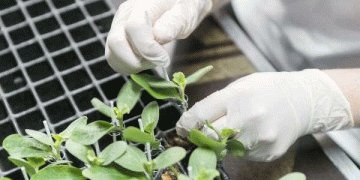Volgograd Oblast remains a key player in Russia’s agricultural sector, with both greenhouse and open-field vegetable production showing steady growth. In 2025, greenhouse farms in the region have already harvested 7.7 thousand tons of tomatoes, marking a 5.4% increase compared to the previous year. Cucumber production in controlled environments reached 13.3 thousand tons, reinforcing the region’s status as the fourth-largest producer of greenhouse cucumbers in the country.
Greenhouse Expansion: A Strategic Priority
Since 2014, the area dedicated to greenhouse vegetable production in Volgograd Oblast has grown 2.5 times, now covering 120.8 hectares (up from 48.1 ha in 2014). This expansion is supported by four major greenhouse complexes:
- OOO “Ovoščevod”
- AO “SP “Zarja”
- SPK “Tepličnyj”
- OOO “Agrokompleks Volžskij”
The region ranks fifth in Russia for total greenhouse vegetable output, demonstrating its critical role in ensuring food security and reducing reliance on imports.
Open-Field Sowing Gains Momentum
Alongside greenhouse growth, open-field vegetable cultivation is progressing, with over 7,000 hectares already planted. Key crops include:
- Onions – 4,600 ha
- Carrots – 1,500 ha
- Cabbage – 362 ha
- Tomatoes – 114.4 ha
- Cucumbers – 52.8 ha
- Peppers – 40 ha
- Beets – 151 ha
This diversification helps stabilize supply chains and meet domestic demand for fresh produce.
Breaking Dependence on Imported Seeds
A major focus for Volgograd’s agricultural sector is seed independence. The “Rostok” Breeding and Seed Center, in collaboration with local farmers and Volgograd State Agrarian University, has developed a new bean variety suitable for canning while maintaining taste and texture. Pending state registration in 2025, this variety could enable large-scale domestic production, reducing reliance on foreign seeds.
Volgograd Oblast is setting a strong example in sustainable vegetable production, combining greenhouse expansion, diversified open-field farming, and innovative seed breeding. With rising yields and a commitment to import substitution, the region is well-positioned to remain a leader in Russia’s agricultural sector.































